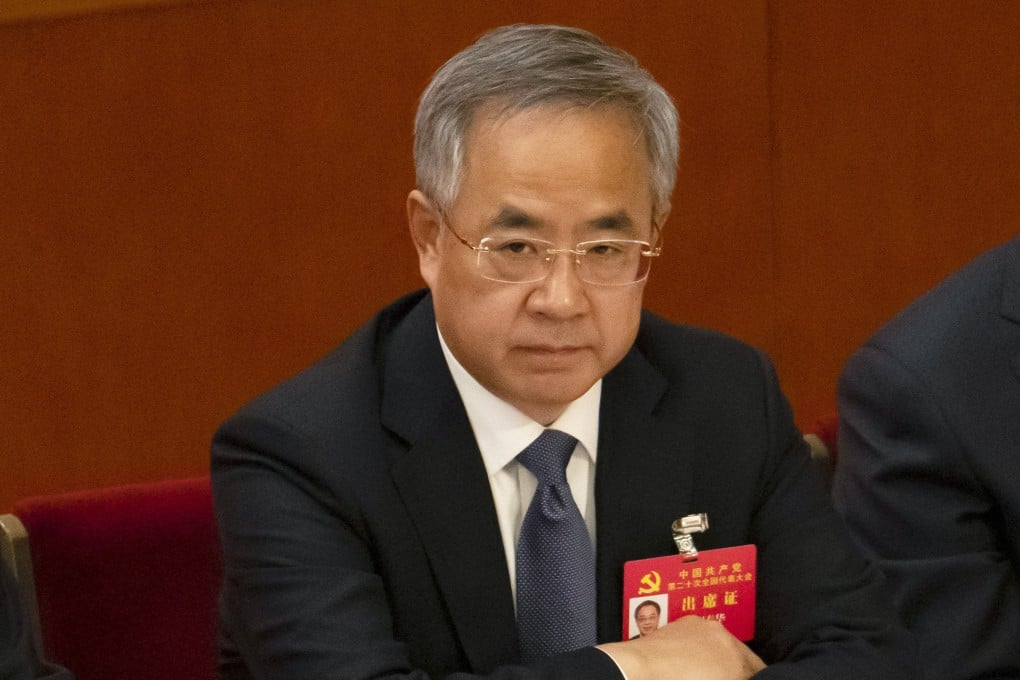Advertisement
China’s Hu Chunhua loses Politburo seat, raising doubts about political future
- Former rising star who was expected to secure a Standing Committee seat now poised to lose vice-premier position in eyebrow-raising demotion
- Move comes as a surprise as he is nine years shy of unofficial retirement age and has been a loyal enforcer of Xi Jinping’s poverty alleviation project
Reading Time:3 minutes
Why you can trust SCMP
12

Once viewed as a top candidate for China’s uppermost echelon of leadership, Hu Chunhua exited the Politburo on Sunday, leaving lingering questions about his fate.
The members of the Politburo, China’s top decision-making body, were unveiled around noon on Sunday. President Xi Jinping remains firmly in charge, having secured a record-breaking third term as the paramount leader of China during the 20th party congress.
Not only did Hu fail to gain a spot on the Politburo’s seven-strong Standing Committee, he also lost his seat on the Politburo.
Hu is one of four vice-premiers of the State Council, China’s cabinet, but he will lose this position as Politburo membership is a precondition for the role.
Advertisement
He has retained his seat on the Central Committee, a senior political body with 205 full members.
Hu’s exit from the top has surprised many, as the 59-year-old is still nine years shy of the customary retirement age for his position. He has been a loyal enforcer of Xi’s grand poverty alleviation project and has promoted trade amid disruptions.
Advertisement
Alfred Wu, an associate professor at the Lee Kuan Yew School of Public Policy at the National University of Singapore, said Hu’s career path appeared to be dimming and there was not much hope that the vice-premier could become premier in the future. He was previously considered one of the top contenders for the role.
Advertisement
Select Voice
Choose your listening speed
Get through articles 2x faster
1.25x
250 WPM
Slow
Average
Fast
1.25x